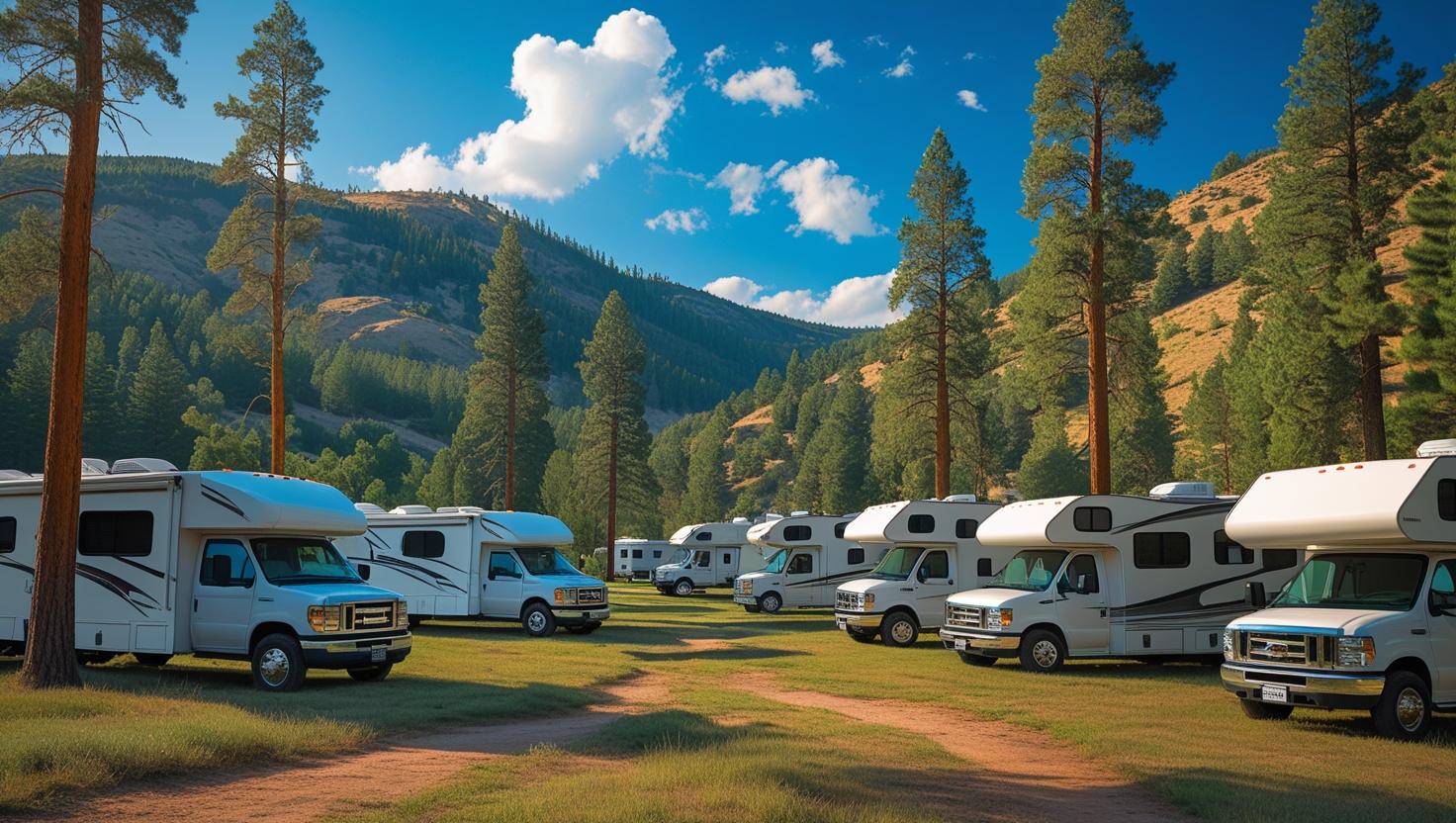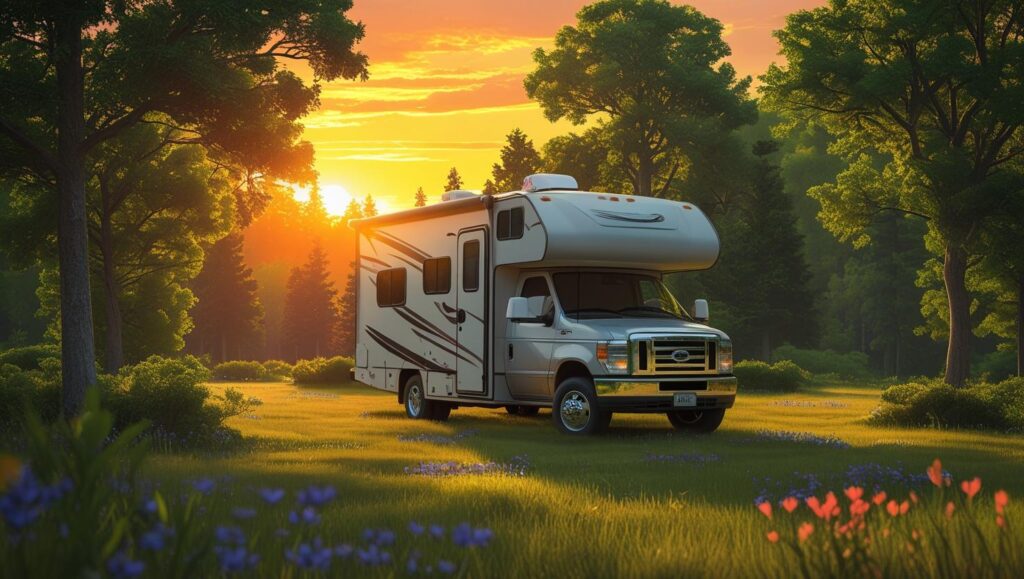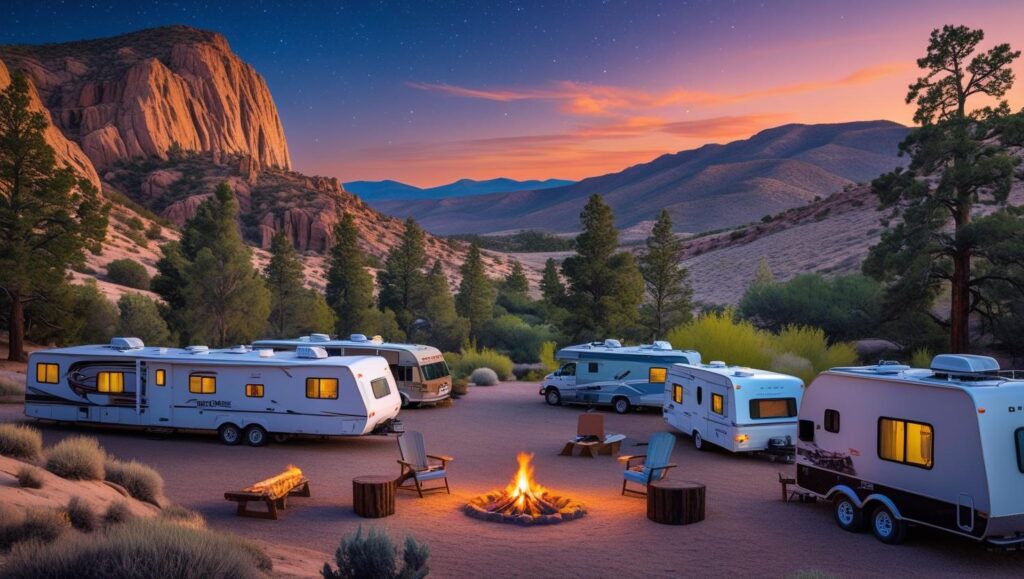Boondocking RV Parks: Best Off-Grid Camping Spots & Tips

Discover the best boondocking RV parks and learn expert tips for off-grid camping. Explore free and low-cost locations to enjoy peaceful, self-sufficient RV adventures.
Introduction to Boondocking RV Parks
Boondocking—camping off the grid without hookups—is a beloved way for RV enthusiasts to experience nature’s tranquility and freedom. For those seeking solitude, adventure, and minimal expense, understanding the best boondocking RV parks and how to prepare for them is essential.
This comprehensive guide introduces top boondocking locations, practical tips, and must-know basics to help you embark on your perfect off-grid RV adventure.
What Is Boondocking?
Boondocking, also known as dry camping, involves parking your RV in undeveloped sites without water, electric, or sewer hookups. It emphasizes self-reliance using solar power, water storage, and waste management systems.
Boondocking spots range from public lands managed by the Bureau of Land Management (BLM) and National Forests to private land rented affordably or even free through community networks.
Top Boondocking RV Parks and Areas in the United States

Boondocking RV Parks
1. Bureau of Land Management (BLM) Lands
- Offer vast, free camping opportunities on public land.
- Popular in western states like Arizona, Utah, California, and Nevada.
- Location example: Kingman Wash Boondocking Area, AZ.
2. National Forests
- Provide dispersed camping sites, often free or low cost, with fewer restrictions than campgrounds.
- Areas like the San Isabel National Forest in Colorado offer excellent boondocking.
3. Wildlife Management Areas and State Trust Lands
- Some states allow boondocking on these lands, great for quiet nature immersion.
4. Private Boondocking Parks
- Affordable private parks dedicated to boondocking with minimal amenities.
- Often provide dump stations or water fills at discounted rates.
5. Harvest Hosts & Boondockers Welcome
- Membership programs offering free overnight stays on private lands such as farms, wineries, and attractions.
Essential Tips for Boondocking in RV Parks
1. Know Local Rules and Regulations
- Check restrictions on length of stay, campfires, and vehicle types. Permits may be required.
- Respect landowner guidelines and preserve natural resources.
2. Prepare Your RV for Self-Sufficiency
- Equip cars with solar panels, battery banks, water tanks, and waste holding tanks.
- Bring portable toilets or plan for nearby dump stations.
3. Practice Leave No Trace Principles
- Pack out all trash, minimize impact on vegetation, and avoid contaminating water sources.
4. Ensure Reliable Power and Water Supplies
- Monitor battery charge and water levels carefully to avoid running out in remote areas.
5. Prioritize Safety and Communication
- Inform someone about your location and expected return.
- Carry reliable navigation tools and emergency supplies.
Benefits of Boondocking: Why Off-Grid RV Camping is So Popular
Boondocking, also known as dry camping or dispersed camping, means parking your RV or camper in undeveloped areas without hookups like water, electricity, or sewer. This unique style of camping has gained immense popularity due to its numerous advantages. Here are the detailed benefits of boondocking:
1. Cost Savings: Free or Very Low Cost Camping
One of the most immediately appealing benefits of boondocking is that it is often free or costs significantly less than staying in RV parks. Much of the boondocking happens on public lands managed by agencies like the Bureau of Land Management (BLM) or National Forests, which typically allow free dispersed camping, sometimes with a stay limit (usually 14 days).
This drastically reduces the monthly camping expenses compared to campgrounds that can charge $30, $40, or even $100+ per night. Over time, especially for full-time RVers, these savings are substantial.
2. Access to Epic Locations and Stunning Natural Beauty
Boondocking allows you to camp in some of the most breathtaking and remote parts of the country—from desert landscapes and mountain meadows to lakefront views and forests.
Unlike crowded RV parks or established campgrounds, boondocking spots let you immerse yourself fully in nature, enjoying the vast outdoors on your terms. It’s common to wake up to panoramic views, breathtaking sunsets, and incredible starry night skies free from light pollution.
3. Greater Privacy, Space, and Solitude
Boondocking sites are usually far less crowded than commercial campgrounds, providing hours or even miles of separation from other campers. This offers peace and quiet rarely found in busy parks.
More space means you don’t have to worry about noisy neighbors. Kids and pets can play freely, and you can experience solitude and a connection to nature that many RV parks can’t offer.
4. Flexibility and Freedom in Travel and Stay Duration
Boondocking offers the freedom to choose where and when you camp without relying on reservations. You can move your rig as you please, stay an extra day if you love a spot, or leave early if plans change.
You’re not bound by campground check-in/check-out times or strict policies. This kind of flexibility is perfect for spontaneous and adventurous travelers.
5. Closer Access to Trails and Outdoor Activities
Boondocking spots are often located closer to hiking trails, fishing spots, and outdoor recreational areas than many developed RV parks. This proximity is great for active travelers who enjoy biking, kayaking, fishing, or off-roading.
Camping amidst nature enhances your outdoor experience by reducing travel time and letting you start your activities right from your camp.
6. No Strict Rules or Unpleasant Restrictions
Unlike regulated RV parks, boondocking usually involves fewer rules. There are no campground curfews, quiet hours, or specific campsite boundaries to follow.
This relaxed environment encourages a more natural camping experience and lets families and groups enjoy their time without worrying about constant regulation.
7. Peaceful, Quiet Environment
Boondocking sites are often serene, free from generator noise, loud music, and traffic sounds. It’s easier to unwind, reflect, read, or simply enjoy the sounds of nature.
Many boondockers appreciate the opportunity to disconnect from technology and daily stress, embracing a slower, simpler lifestyle during their trips.
8. Learn Self-Reliance and Minimalist Living
Boondocking requires planning and self-sufficiency—managing water, power, and waste responsibly. This lifestyle encourages learning new skills like conserving resources, using solar power effectively, and adapting to nature’s rhythms.
Many RVers find this challenge rewarding, helping them live more sustainably and minimally.

Minimalist Living And Stunning Beauty
Summary of Boondocking Benefits
| Benefit | Description |
|---|---|
| Cost Savings | Free or very low-cost camping on public lands. |
| Stunning Locations | Camp in remote, beautiful natural settings. |
| Privacy & Solitude | Farther apart campsites, less noise, and fewer neighbors. |
| Flexible Travel Plans | No reservations or strict check-in/out times. |
| Proximity to Outdoor Activities | Often closer to trails, lakes, and off-road adventures. |
| Fewer Rules | Relaxed camping with minimal enforced regulations. |
| Quiet Environment | Peaceful, natural sounds without generator or traffic noise. |
| Self-Reliance Skills | Encourages sustainable, minimalist, and prepared living. |
The freedom, cost-effectiveness, and immersive nature experiences of boondocking make it a favorite among RV enthusiasts. If you’re planning to boondock, embracing these benefits while preparing adequately will make your adventures safe, enjoyable, and unforgettable.
Challenges to Be Aware Of
- Limited or no access to utilities means thorough preparation is critical.
- Possible lack of cell phone coverage and internet connectivity.
- Weather and wildlife can pose risks without nearby assistance.
Top Specific Boondocking Sites in the USA
1. Medicine Bow National Forest, Wyoming
Great for scenic solitude and wildlife spotting, this national forest offers dispersed camping with plenty of open space.
2. Lone Rock Beach, Page, Utah
A popular boondocking spot right on the beach of Lake Powell with stunning waterfront views. Amenities include toilets, water spigots, and dump stations for a small fee.
3. Government Wash, Boulder City, Nevada
Located less than an hour from Las Vegas, this free boondocking area features beautiful lake views and dumpsters. Good base for exploring the Hoover Dam and the Valley of Fire.
4. Winter Park, Colorado
High elevation boondocking close to mountain bike parks and ski resorts. Great for outdoor enthusiasts wanting peaceful surroundings.
5. Chosa Campground near Carlsbad Caverns, New Mexico
Large open parking area near the famous caverns with cellular service and a free dump station in town. Good for beginners due to the amenities nearby.
6. Silverthorne, Colorado
Riverside dispersed camping with wildflower season views and a chance to spot moose. Quiet and scenic.
7. Northern Nevada Near Hot Springs
Boondock on public land near natural hot springs and wild burros for a unique off-grid experience.
8. Lake Panosoffkee Wildlife Management Area, Central Florida
Free dry camping with amenities like water spigots, picnic tables, and restrooms. Perfect for exploring the surrounding areas.
Essential Packing Checklist for Boondocking RV Trips
Water & Hydration
- Minimum 1 gallon of water per person per day + extra for cooking and cleaning
- Collapsible water containers
- Water filter or purification tablets
Food & Cooking
- Shelf-stable foods (canned goods, pasta, rice)
- Portable stove or grill with fuel
- Basic utensils, pots, pans, knives
- Matches or lighters, fire starters
- Cooler or portable fridge for perishables
Shelter & Sleeping
- Tent or RV setup
- Sleeping bags, pillows, and blankets
- Sleeping pads or air mattresses
- Tarps or shade canopies
Power & Lighting
- Solar panels or portable solar kits
- Portable battery banks
- LED lanterns and string lights
- Extra batteries and charging cables
- Inverter (if using AC devices)
Health & Safety
- First aid kit
- Personal medications
- Sunscreen and insect repellent
- Headlamps and flashlights
- Fire extinguisher
- Multi-tool or knife
Tools & Maintenance
- Basic tool kit (screwdrivers, pliers, wrench)
- Duct tape and repair kits
- Spare fuses and electrical connectors
- Tire inflator and spare tire
- Sewer hose and portable dump tank
Comfort & Miscellaneous
- Camping chairs and a table
- Clothesline and clothespins
- Trash bags and recycling bins
- Portable toilet or waste bags
- Maps, a compass, or a GPS device
- Books, games, or entertainment
Tips:
- Always pack for your destination’s climate and length of stay.
- Include items for emergencies and vehicle repair.
- Practice Leave No Trace principles: pack out all trash, minimize impact.
Conclusion
Boondocking RV parks offer unparalleled freedom, beauty, and budget-friendly travel for the adventurous RV community. By choosing the right sites and preparing your rig for off-grid living, you can embrace the peaceful simplicity of nature while enjoying modern comforts.
FAQ
Q: Are boondocking RV parks always free?
A: Many public lands allow free boondocking, but some private or state-managed sites may charge nominal fees.
Q: How long can I stay at a boondocking site?
A: It depends on land rules; many BLM sites limit stays to 14 days.
Q: What kind of RV equipment is best for boondocking?
A: Solar panels, large water tanks, efficient batteries, and portable waste solutions.
Many public lands allow free boondocking, but some private or state-managed sites may charge nominal fees.
It depends on land rules; many BLM sites limit stays to 14 days.
Solar panels, large water tanks, efficient batteries, and portable waste solutions.
